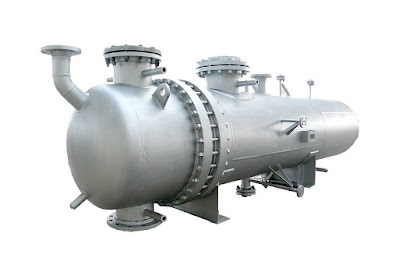Pressure Vessel:
A pressure vessel is a container designed to hold gases or liquids at a pressure substantially different from the ambient pressure.

Thin walled pressure vessels:
→ If the thickness of the wall is less than 1/10 to 1/15 of its diameter, it is known as thin wall.
→ It may be noted that whenever a cylindrical shell is subjected to an internal pressure, its walls are subjected to tensile forces that resist the bursting forces developed across longitudinal and transverse sections & its also subjected to the following two types of tensile stress.
↪ Circumferential stress or hoop stress ↪ Longitudinal stress
Stress in longitudinal sections (Circumferential or hoop stress):
Consider the typical longitudinal section of a cylindrical tank shown being subjected to an internal pressure P. The length of the tank is L and the wall thickness is t. Isolating the right half of the tank.


This stress is also called tangential stress, hoop stress and girth stress.
Stress in transverse sections (Longitudinal stress):
Consider the transverse section of a cylindrical tank, the bursting force acting over the end of the cylinder is resisted by the resultant tearing forces acting over the transverse section.


Stress in Spherical tank:
If a spherical tank of diameter D and thickness t contains under a pressure of P, the stress at the wall can be expressed as:


Consider
the tank shown being subjected to an internal pressure p. The length of
the tank is L and the wall thickness is t. Isolating the right half of
the tank: - See more at:
http://www.mathalino.com/reviewer/mechanics-and-strength-of-materials/thin-walled-pressure-vessels#sthash.LFuvdbpa.dpuf
Consider
the tank shown being subjected to an internal pressure p. The length of
the tank is L and the wall thickness is t. Isolating the right half of
the tank: - See more at:
http://www.mathalino.com/reviewer/mechanics-and-strength-of-materials/thin-walled-pressure-vessels#sthash.LFuvdbpa.dpuf





No comments:
Post a Comment